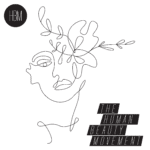
“Almost everything will work again if you unplug it for a few minutes, including you.” —Anne Lamott
Technology has always been ubiquitous, touching every part of our lives. Between binging your favorite television shows, shopping online, and facetiming your friends, your devices have practically become an extension of yourself to make life easier and more entertaining. While it’s true that technology has incredible value and can help us connect in ways like never before, taking regular breaks, or unplugging, from all of the screens in our lives offers an array of benefits for a happier, more fulfilling life. In celebration of National Day of Unplugging, let’s take a look at the advantages of unplugging from technology.
The National Day of Unplugging
National Day of Unplugging (NDU) is an awareness campaign observed on the first Friday in March and is organized by Unplug Collaborative, a 501(c)(3) nonprofit. NDU was established in 2009 when very little academic and clinical research had been conducted about the long-term impact of smartphone use on mental health.
Recognizing the need for awareness of what might become a bigger problem, the Jewish arts and culture non-profit Reboot launched in partnership with Sabbath Manifesto, a project designed to slow down lives in an increasingly hectic, technology-addicted world.
What was once a small group of people gathering for tech-free Shabbat dinners turned into thousands of world-wide community partners organizing live unplugged events, year after year. To date, there are more than 135,000 people who have participated in the events hosted worldwide.
National Day of Unplugging Membership is open to any educator, organizer, parent, or individual who wants to spread awareness about how to maintain a healthy life/technology balance.
What Does It Mean To Unplug From Technology?
The idea of unplugging is to take time off from your electronics, while also making the conscious decision to be more mindful during screen time. Although technology has some wonderful benefits, it’s becoming increasingly obvious that our world is developing an unhealthy attachment to it, which is why unplugging is so important.
The statistics regarding our connected lives are nothing short of staggering:
- 67% of cell phone owners check their phone for messages, alerts, or calls — even when they don’t notice their phone ringing or vibrating.1
- 84% of cell phone users claim they could not go a single day without their device.2
- Studies indicate some mobile device owners check their devices every 6.5 minutes.3
- 88% of U.S. consumers use mobile devices as a second screen even while watching television.4
- Almost half of cell phone owners have slept with their phone next to their bed because they wanted to make sure they didn’t miss any calls.5
- Traditional TV viewing eats up over six days (144 hours, 54 minutes) worth of time per month.6
- Some researchers have begun labeling “cell phone checking” as the new yawn because of its contagious nature.7
The Benefits of Unplugging
The addiction to technology can be powerful, but by unplugging, you can reap amazing benefits that may greatly impact your emotional and mental health, along with your overall wellness. Here are some important reasons to unplug:
Unplugging Reduces Stress And Anxiety
Unplugging from technology is like a reboot for your brain. When you’re not bombarded by dozens of emails, constantly looking at news alerts on your phone, or mindlessly scrolling through movies on Netflix, your mind can slow down, relax, and be in the present moment.
Researchers have recently discovered one in three people felt worse after visiting Facebook and more dissatisfied with their lives. From family happiness to body image to vacation destinations to the number of birthday greetings on a Facebook wall, the opportunity for anxiety, stress, envy, and jealousy often presents themselves on social media. By unplugging, you can reduce the negative emotions commonly associated with social media.
Unplugging Combats The Fear Of Missing Out
The fear of missing out (FOMO) has been recognized as a recently emerging psychological disorder brought on by the massive increase in technology addiction. The premise is simple: our social media streams are filled with what’s happening all around us and we want to be experiencing everything our friends and family are.
Within this constant stream of notifications, our FOMO continues to grow. Unplugging can allow you to go into the world and make your own experiences. Going on a hike, spending time with your family or pets, or just reading a book can help you leave FOMO at the door and create your own memories that you’ll never have to worry about missing out on. Some refer to this experience as JOMO, the joy of missing out.
Unplugging Promotes Creation Over Consumption
Most of our time is spent in one of two categories: consuming or creating. While technology can contribute to creating, such as writing blogs on a computer or posting a TikTok, most of the time we spend in front of technology is spent consuming. Playing video games, browsing the internet, watching movies, and listening to music are all examples of technology consumption.
The next time you’re about to plug in, think of whether it is to create or to consume. This moment of mindfulness can help you consider your passion, your solution, and your unique contribution to your world. Powering down your devices is a great way to focus on your creative approaches to benefit others.
Unplugging Empowers You To Enjoy Life
Our world may be changing, but the true nature of life is not. Life, at its best, is happening right in front of you. These experiences will never repeat themselves, but if you’re too busy staring at your cell phone or computer screen, you may not be truly present to experience all the good that is happening IRL.
Powering down and disconnecting from the devices we’ve become so dependent on means less fragmented moments throughout the day. Your attention span will increase, your self-awareness and mindfulness will grow, and you’ll be able to appreciate and savor your time and the people you encounter throughout the day.
Unplugging Allows You To Connect To Nature
Did you know there’s a natural urge to go outside when you choose to disconnect from technology? Exploring the outdoors is a healthy reminder that there’s life beyond skyscrapers, computers, and cell phones.
Getting outdoors can be an incredibly restorative experience. It gives you a chance to reconnect with nature, clear your mind from clutter, engage your senses, and bring a sense of calm to your life. Additionally, being outside gives you much-needed vitamin D, which can help you avoid long-term health problems like heart disease and diabetes.
How You Can Unplug For A More Mindful Life
We all need a respite from technology and the workweek from time to time for our overall wellness. Here are some practical tips you can use to enrich life and your technology usage:
- Reduce technology 10% at a time. Stopping the use of your cell phone or television cold turkey can make you revert back to your old ways. Try a more subdued approach by limiting technology sparingly. As you slowly wean yourself off of technology, make notes on how you feel each time you cut time off your devices.
- Set up technology-free zones. It’s important to have places in your house for you and your family and friends to congregate or unwind after a hard day at work. In shared spaces, establish digital-free zones. If you live alone, try setting up a time before bed to read a book or meditate without technology.
- Turn off notifications. It’s challenging to ignore email and social media alerts, but these distractions sap your energy and focus. By turning off your notifications, you’ll be better able to concentrate, and you’ll regain control of how you spend your time. In time, you’ll likely feel calmer, more relaxed, and productive.
- Track the time you spend online. Unknowingly, social media can take up a large portion of your day. After all, it’s easy to scroll through TikTok for hours. You can download apps, such as Social Fever and Stay Focused, that will help you keep up with social media and other app usage.
- Have a technology-free morning. Instead of checking your phone first thing in the morning, meditate, go for a walk, spend time with family, or do yoga. By avoiding technology in the mornings, you’ll feel more grounded, energized, and ready for your day.
- Be Intentional. If you can’t unplug from the world completely, try to focus on being intentional with how you use technology. Going through your apps to figure out which ones you need and which ones you can delete is a step in the right direction.
- Plug into what matters. When you unplug, it’s important to let yourself enjoy life’s pleasures. Do what you love, like riding a bike or going on a walk with your dog. When you unplug, give yourself permission to focus on the things you have a passion for outside of technology.
Final Thoughts
“Unplugging is an act of separating ourselves from what doesn’t align with our values and our heart-centered desires.” —Caroline Makepeace
Today’s world is full of distractions; from cell phones to social media to television, the average person is exposed to screens and technology at an alarming rate. This constant exposure can make it difficult to focus, which can cause anxiety, stress, and unhealthy emotions.
Unplugging is a wonderful way to learn more about yourself, promote relaxation and creation, and take part in more of the wonders that the world has to offer. Without technology, you can be you, unfiltered and unedited.
How will you unplug? Do you have an unplugging routine that has helped you ease off of technology? Let us know in the comments!
References:
https://www.dailymail.co.uk/news/article-2276752/Mobile-users-leave-phone-minutes-check-150-times-day.html [1] [2] [3] [5]
https://www.businessinsider.com/a-majority-uses-mobile-as-second-screen-2013-5 [4]
https://www.treehugger.com/green-tech/gadgets-electronics/stories/why-cellphone-use-is-contagious [7]


















The essayist splendidly catches the pith of the Distraught Hatter’s appeal and erraticism, making an interpretation of it into style motivation that sparkles inventiveness. The post dives into the combination of exemplary style with cutting edge components, advising us that design isn’t just about clothing yet additionally about self-articulation and pushing limits.